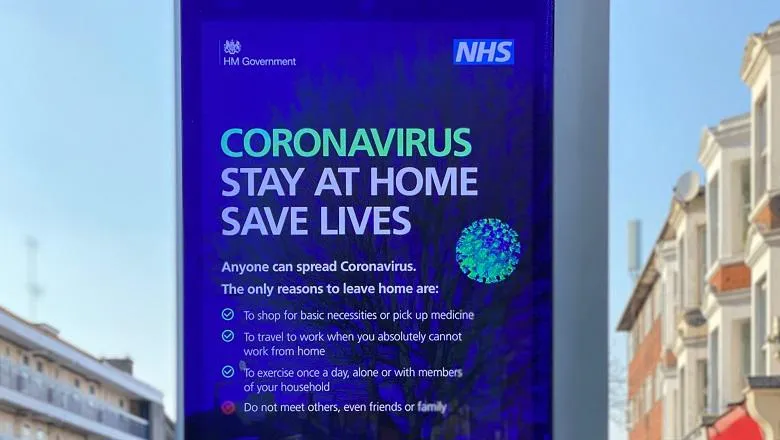Palliative care services have been at the frontline of the pandemic, documenting this and having the opportunity to gain further insights into striking palliative care response to the pandemic has truly been remarkable. Having the opportunity to work with study collaborators, partners, sites, colleagues, mentors and services at national and international level on this important project and critical times has been invaluable to me as an early carer researcher in palliative care.
Dr Mevhibe Hocaoglu, Research Associate, Cicely Saunders Institute
27 July 2020
Funding boost for research into palliative care during COVID-19
Additional funding has been awarded for a study into the palliative care pandemic response.

Since April 2020, researchers in the Cicely Saunders Institute have been leading a collaboration investigating how palliative and end of life care have responded to COVID-19 in the UK and across the world. The study – CovPall – has recently received a boost in funds from the COVID-19 Rapid Response Rolling Call, a joint initiative between UK Research and Innovation, Department of Health and Social Care and the National Institute for Health Research. This is in addition to the support it has received from Cicely Saunders International and the NIHR Applied Research Collaboration South London.
During the pandemic, palliative care services and hospices have rapidly changed how they work. They are supporting existing patients who don’t have COVID-19 and those with COVID-19 who have severe symptoms or are dying. Some of the symptoms, such as breathlessness, fever, agitation and pain, are very distressing. But the symptoms that people experience and the best treatments for these symptoms are not well understood in this new disease.
The CovPall study aims to rapidly evaluate the palliative care response in COVID-19 to improve care now and in the future through two workstreams. The first will collect survey data from health professionals to find out how palliative care and hospice services have changed; how their staff, volunteers and others have adapted what they do; and the challenges and innovations involved. The second workstream will research the symptoms and problems patients have, how they change over time, what treatments / therapies are used and what seems to work best. Data collection is repeated after six to eight weeks to understand the changes in practice over time and early findings released so health services, policy makers and the research community can respond effectively to this and future pandemics.
Alongside researchers from the Cicely Saunders Institute, the CovPall team also involves experts from the International Observatory of End of Life Care at Lancaster University, Hull York Medical School and The Martin House Research Centre in partnership with University of York.
Palliative care services have played a focal role in responding to the COVID-19 pandemic. As an early career researcher, I am delighted to be working with senior members of the research team, collaborators and PPI members to capture palliative care contributions in the COVID-19 pandemic, challenges and strategies used to address them. Our findings will enable better preparation for future or new pandemics.
Dr Adejoke Oluyase, Research Associate, Cicely Saunders Institute
Alongside the UK Research and Innovation and the National Institute for Health Research, Cicely Saunders International and the NIHR Applied Research Collaboration, South London, partners on the project are the European Association for Palliative Care (EAPC), Marie Curie, Palliative Care Outcome Scale Development Team, Together for Short Lives, Sue Ryder and Hospice UK.
Individuals affected by serious illness are facing considerable physical and psychological challenges as a result of COVID-19. With required services already strained, a loss of professional support during Covid-19 pandemic resulted in increased stress to patients and families. We are therefore pleased to see that this project has been approved, as it is absolutely necessary to understand and research the impact that COVID-19 is having on palliative care services and on patients and their families, carers and friends.
Rashmi Kumar & Margaret Ogden, Patient and Public Involvement Representatives
Find out more about the CovPall Study
The CovPall research team
Cicely Saunders Institute, King's College London
- Professor Irene J Higginson
- Dr Katherine Sleeman
- Dr Matthew Maddocks
- Dr Sabrina Bajwah
- Dr Mevhibe Hocaoglu
- Dr Adejoke Oluyase
- Rachel Cripps
International Observatory of End of Life Care, Lancaster University
- Professor Catherine Walshe
- Professor Nancy Preston
- Lesley Dunleavy
Hull York Medical School
- Professor Fliss Murtagh
- Dr Andy Bradshaw
The Martin House Research Centre in partnership with University of York
- Professor Lorna Fraser





